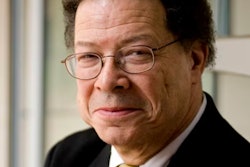For most, pursuing a college education is a youthful endeavor reserved for students 35 years of age and under, however, researchers at the American Council on Education (ACE) are trying to change that. In their most recent report, “Framing New Terrain: Older Adults and Higher Education,” ACE examines the obstacles that prevent older adult participation in higher education and seeks to remedy them.
The report, based on literature of leading analysts in the field, concluded that older adults, ages 55 to 79, are living longer and pursuing new postsecondary goals including career retooling and enrolling in college for the first or fifth time. However, colleges and universities “have yet to catch up with the burgeoning demand for new learning options, especially programs for career transitions.
In 1950, the average life expectancy was 68 years of age. Most people worked their whole lives and died before they were able to enjoy their golden years.
Today, however, the average retirement age is 62 and life expectancy is 78 and rising. Add to this, advances in health care and the growing affluence of older adults and you have a slight increase in older adults with a sincere desire to pursue educational endeavors, experts say.
The report reveals that the biggest challenge that older adults face as they attempt to re-enter the arena of higher education is funding. For those living on fixed incomes, the financial barrier becomes extremely difficult. While tuition reimbursements may benefit those in the workforce, countless others do not.
“Simply finding what types of financial assistance is available to you can be a challenge for some older adults. Depending on what your goals are, there are several things in the works,” said Mary Beth Lakin, associate director of special projects learning at ACE. “There are community college grants available for older adults that work, and senior fee waiver programs at colleges and universities in certain areas, for retired adults.”
Race and ethnicity also prove to be barriers to higher education for older adults for various reasons. Minorities are more likely to experience poor health and inadequate medical care throughout their lives than their White counterparts.















